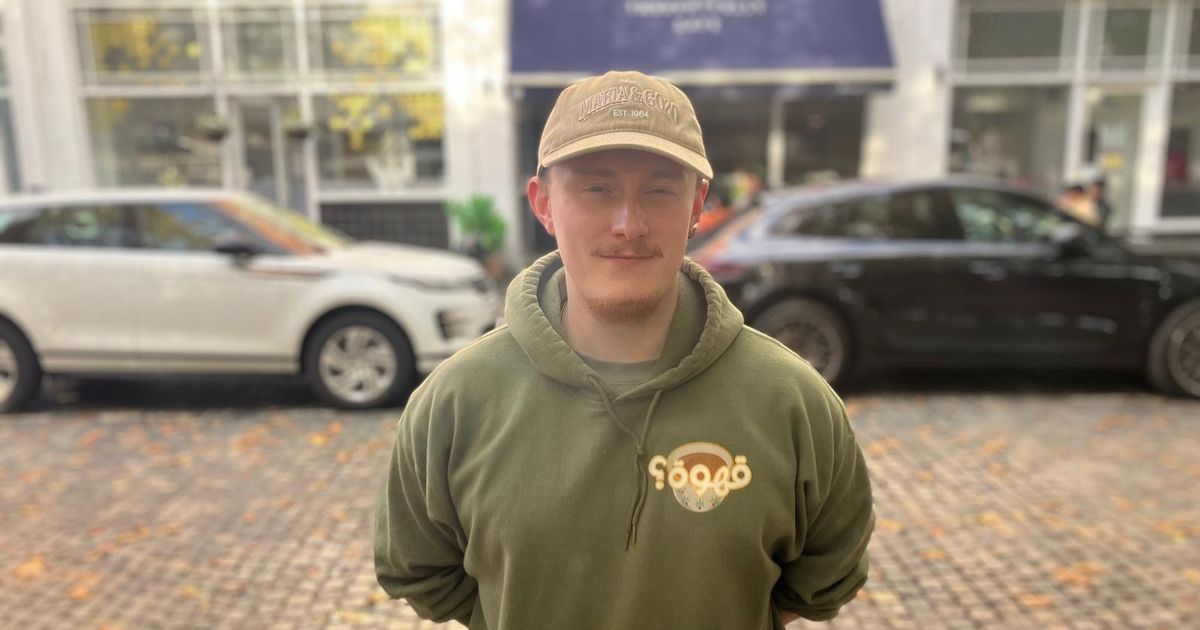The small square has several shops and residents who have lived there for decades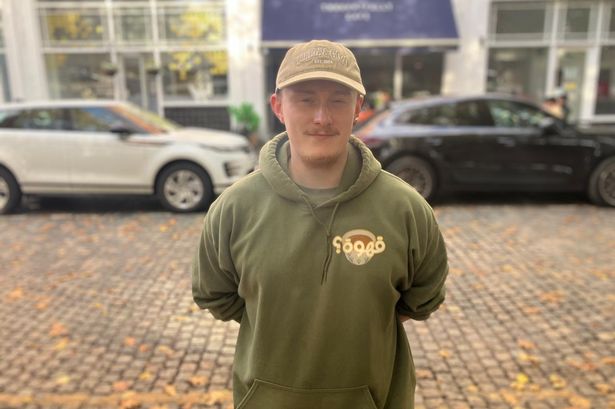 Tom Starkey, manager of Thoughtfully Café (Image: Jamie Greer/Liverpool ECHO)
Tom Starkey, manager of Thoughtfully Café (Image: Jamie Greer/Liverpool ECHO)
In the heart of Liverpool city centre, surrounded by busy roads and high-rise buildings, lies a cobbled street with trees and low-rise housing.
You’ll find Cleveland Square before you reach the busy junction with Paradise Street and Hanover Street, and it is less than a minute from Liverpool ONE. The Q-Park for John Lewis towers over it. But the various businesses here feel it is often overlooked by passers-by – and that is part of why they like it so much.
Ryan Jenkins, 35, from Croxteth Park, who runs DogOne pet groomers in the Square, told the ECHO: ”I think that’s maybe the charm of it, the fact that it’s overlooked.
“Quite often when I tell people where I am, even though I’ve been here for many years, people don’t know the name of it. They don’t know where it is.
“However, as soon as you get to the location, everybody recognises the square. Everybody goes, I know exactly where you mean now.
“It’s a lovely quaint square with the trees outside and the cobbled street. It’s had a lot of history changes over the years, but it still has the cobbles and a bit of green.
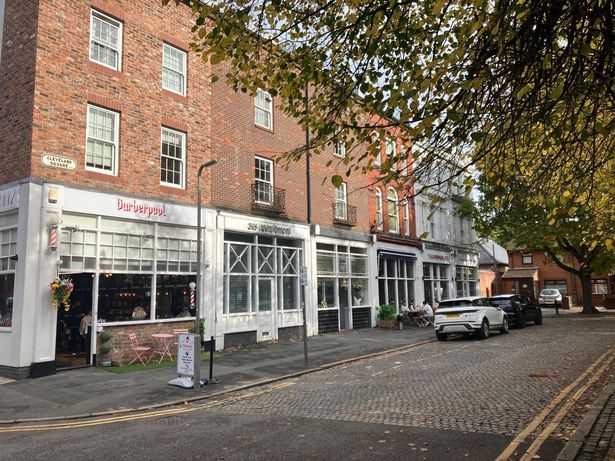 Cleveland Square in Liverpool(Image: Jamie Greer/Liverpool ECHO)
Cleveland Square in Liverpool(Image: Jamie Greer/Liverpool ECHO)
”If I look out my window, there’s tower blocks, there’s John Lewis car park, there’s the bus station and everything like that which was there before I moved.
“But it feels like the city has grown around the square and the square has kept its old charm and individuality.”
The view is shared by Rebecca Thammer, 32, from Netherley, who works at the Liverpool Vets in the square.
She said: “We do get a lot of calls about where we are based, but then when you say Cleveland Square, they are obviously too sure where that is.
“So we always just say, it’s at the back of the bus stops. Before I worked here, I’d never come to this square either.
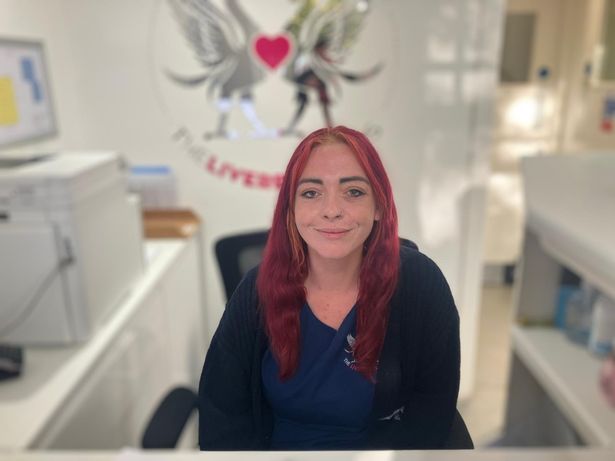 Rebecca Thammer, who works at The Liverpool Vets (Image: Jamie Greer/Liverpool ECHO)
Rebecca Thammer, who works at The Liverpool Vets (Image: Jamie Greer/Liverpool ECHO)
“It was just a part of town that you by-pass in a way. A lot of people don’t really know about the square itself.
Cleveland Square is named after John Cleveland, a mayor of Liverpool and an MP at the beginning of the 18th century who later ran the Cleveland Pub.
Later, it became the centre of Liverpool’s Chinese community, along with Pitt Street and Frederick Street.
It was during the 1930s, this area of the city, now known as ‘Chinatown’, had fallen derelict as a result of the economic depression and its effects on the shipping business.
The council had made plans to replace all the decaying dwellings and warehouses, but it was the Luftwaffe during the May Blitz in 1941 that would have the biggest hand in uprooting the Chinese community from their docklands homes.
The German bombs took a terrible toll on Chinatown, destroying Pitt Street, Cleveland Square and Fredrick Street, causing the Chinese community to move further inland to Nelson Street, Great George Street, Upper Parliament Street, Duke Street and Berry Street – areas of the city we associate as Chinatown today.
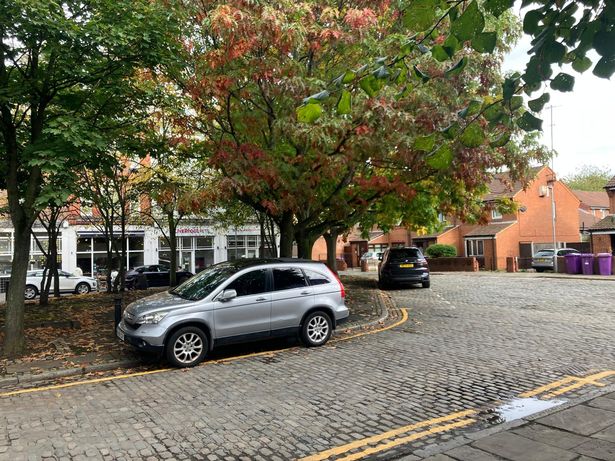 Cleveland Square in Liverpool(Image: Jamie Greer/Liverpool ECHO)
Cleveland Square in Liverpool(Image: Jamie Greer/Liverpool ECHO)
The Cleveland Pub is now gone too but the square appears to have adapted to changing times. Thoughtfully Café has become a popular destination for the city’s Muslim community due to its food options, lack of alcohol and opening hours, according to its manager Tom Starkey.
Tom, 32, who also lives in the city centre, said: “We’re open from 8.30am to 9pm besides Sunday, where we open at 10am.
“The previous owners brought in halal options like chicken and turkey bacon. It’s nice to know that we’ve actually got those options because it’s an answer for everyone.
“Not handing out alcohol just makes life a lot easier. I used to work in a bar – booze is a whole different ball game.”
One person who feels differently is Maria Carney, 71, who lives in one of the houses in Cleveland Square. She says the noise from those in the square late at night is an issue.
She said: “They’re here at all times and they’re allowed to be. But we’ve lived here all this time and don’t get a say. It’s the parking too – my friend got a parking ticket for parking outside my house.”
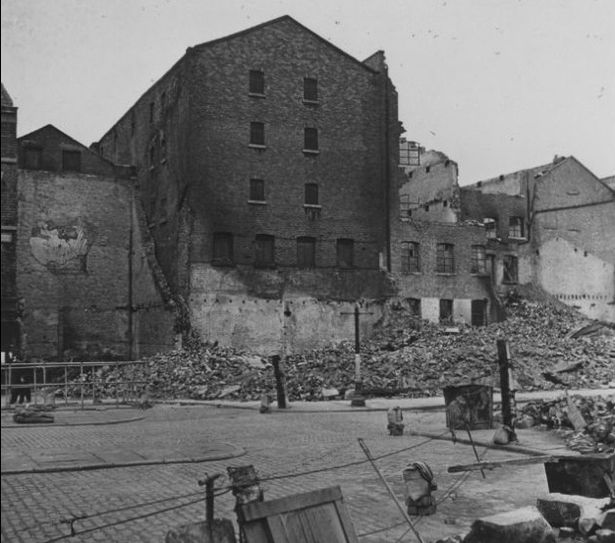 View of Cleveland Square showing Pitt Street on right. Site of Liverpool’s original Chinatown. September 21, 1941.(Image: Liverpool Central Library and Archives)
View of Cleveland Square showing Pitt Street on right. Site of Liverpool’s original Chinatown. September 21, 1941.(Image: Liverpool Central Library and Archives)
But other residents the ECHO spoke to said they enjoyed living in the square. One woman, who previously lived in tenements elsewhere in town before moving here, said: “I like it. I’ve always lived in the city centre.
“The neighbours have changed, it’s not the same as in the tenements. People are quieter than they used to be. The car park makes your living room darker. But it’s nice.”
Tom, who runs a neighbours discount for those who live on the square, says it has been hard to attract business during Ramadan but things are improving.
He said: “These last few months now have definitely improved. People seem to know us a bit more, we’ve gone onto programs like Too Good to Go and that’s really helped expose us a little bit more.
“Most people get to John Lewis, revert back on themselves or go down Hanover Street, Duke Street at best if we get lucky. We want people to know the places here.
“There used to be all different types of shops prior. Now we’ve obviously got us, the vets, the dog groomers and at the barbers at the end well.
“We are a little out of the way from town, but still close enough for you to get right back into it. It’s convenient, it’s nice, it’s quiet.”
Rebecca added: “It looks nice even when it’s raining. The neighbours are really friendly with us and we’ve got the coffee shop next door – they’re really friendly with us too.
“To be honest, it’s a lovely place to work. You see a lot of different people.”
